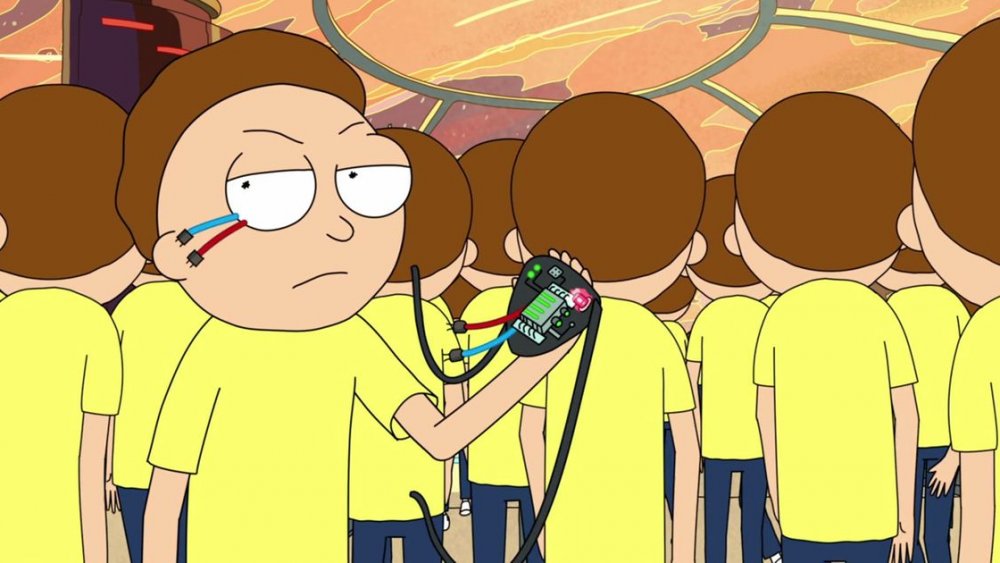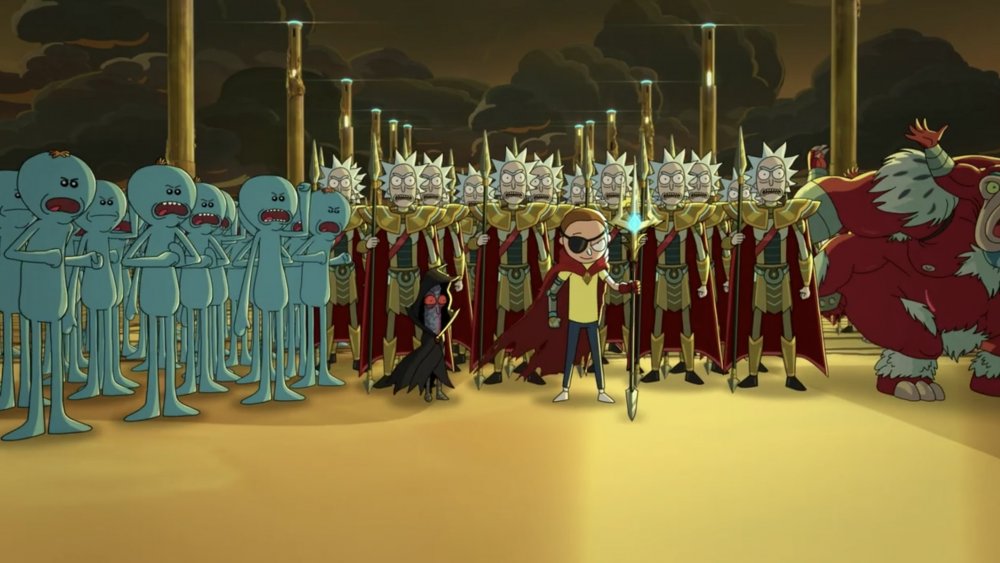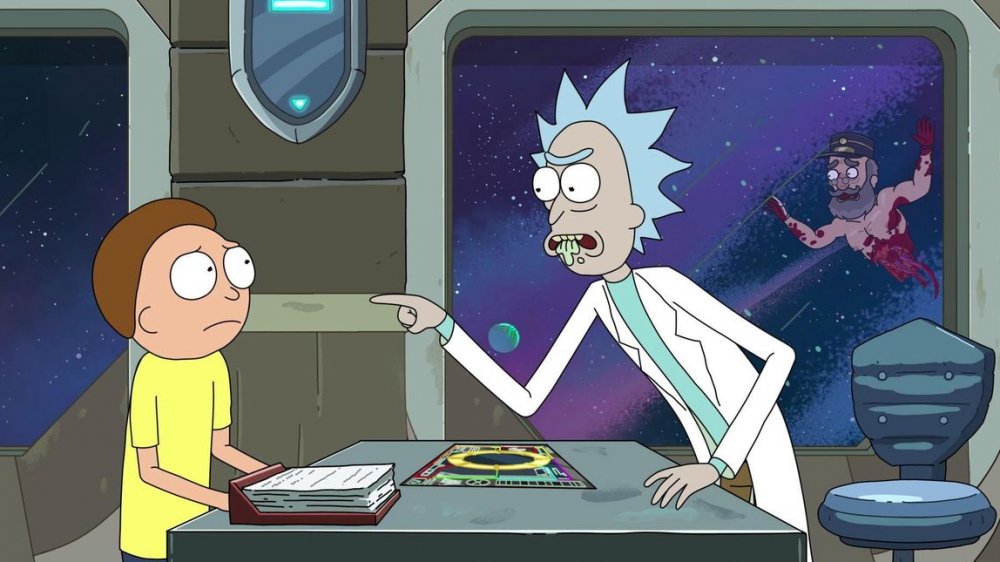Why Rick And Morty Fans Are Worried About The Evil Morty Plotline
Contains spoilers for Rick and Morty season 4, episode 6, "Never Ricking Morty"
Rick and Morty fans have built out a surprisingly robust collection of theories for a cartoon based around making people laugh at the universe. Every casual aside, one-off character, and alternate timeline has been cataloged and plumbed for meaning by a group of diehards hoping to be rewarded by the creative team's hatred of loose ends.
One of the most anticipated payoffs came in the form of Evil Morty, an eyepatch-wearing version of the main character from another dimension who has maneuvered his way into power over all other versions of Rick and Morty (both voiced by Justin Roiland). But a recent appearance by the little Big Bad has fans worried that all their plotting and guesswork was for naught.
Evil Morty showed up on the universe-smashing episode "Never Ricking Morty," leading an entire army of robo-Ricks, Meeseeks, and male Gazorpazorpians alongside evil version of Mr. Poopybutthole (Roiland). His brief appearance in the fan-service-filled faux conclusion of "Never Ricking Morty" — and the lack of Citadel-related plotlines on recent episodes of Rick and Morty – have fans nervous that Evil Morty was just a joke they put too much weight on.
Fans have long thought about Evil Morty's importance, but is the show doing the same?
Fans have thrown out just about every imaginable explanation for Evil Morty, the only Morty who has tossed off the character's trademark meekness. Some fans believe he's the original Morty from the dimension where the main characters originated. That timeline has left the Earth covered in monsters straight out of a David Cronenberg film, and the rest of Morty's family in that dimension have become battle-hardened warriors. A rougher and more calculating Morty would make sense in that situation. Others believe Evil Morty is the original Morty of the show's main Rick, theorizing that he rejoined the family while running from the consequences of his own Morty gone bad. Some Redditors have even convinced themselves that Evil Morty is the counterpart to Doofus Rick, balancing out the pair by getting all of Rick's cunning.
None of that matters if the show's writers don't have any intention of wrapping up the Evil Morty storyline. It's a lot of long, hard thinking about something the show's own creators may not have been losing sleep over. When Evil Morty appears at the tail end of "Never Ricking Morty," it's only after Storylord (Paul Giamatti) tempts Rick, "Don't you want to see how your story ends?" and shows him a vision of a possible future. Some fans have taken this as a sign that Evil Morty isn't going to be canon.
Other Rick and Morty fans still believe in a payoff
Not all fans have lost hope. They see the recent Evil Morty appearance as a commentary on their own obsession with the character.
"Never Ricking Morty" is an episode about the need to produce under dual pressures of fan expectations and capitalism. The train that the title pair are trapped in is a never-ending story circle — showrunner Dan Harmon's own take on the archetypal Hero's Journey. A machine built to crank out story ideas no matter how nonsensical, the Story Train could be a comment on the strain of the show's massive 70-episode renewal order that came in May 2018.
Rick eventually escapes the episode's villain in an explosion of fan service, bringing together wave after wave of beloved characters in a climax lifted straight from Patton Oswalt's Marvel-meets-Star Wars filibuster. It practically screams "come get y'all juice" at the message board prognosticators.
To wrap it all up, the entire story-generating enterprise is revealed to be nothing more than a tchotchke in The Citadel's gift shop. The entire point of creating stories is selling useless crap. And when that story-generating train breaks? They unceremoniously dump it for a new one.
With a message that bleak, it's fair to speculate that the Rick and Morty writers might be feeling a little bit of burnout. But it's not enough to say that they've completely given up on important character arcs. If they truly didn't care, they wouldn't have felt the need to stop the story-generating train in the first place.


